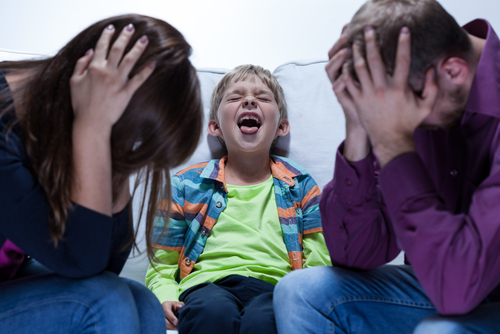
By John M. de Castro, Ph.D.
In today’s Research News article “ Comparative effects of mindfulness-based stress reduction and psychoeducational support on parenting stress in families of autistic preschoolers” (See summary below or view the full text of the study at: https://pmc.ncbi.nlm.nih.gov/articles/PMC10853488/ ) Neece and colleagues examined the effectiveness of Mindfulness-Based Stress Reduction (MBSR) treatment for the stress of parents of preschool age autistic children. They found that in comparison to psychoeducational support those parents who received MBSR reported lower and longer lasting reductions in stress levels 1-year later.
Mindfulness training significantly reduces parental stress with autistic preschoolers.
CMCS – Center for Mindfulness and Contemplative Studies
This and other Contemplative Studies posts are also available on the Contemplative Studies Blog http://contemplative-studies.org
Study Summary
Neece CL, Fenning RM, Morrell HE, Benjamin LR. Comparative effects of mindfulness-based stress reduction and psychoeducational support on parenting stress in families of autistic preschoolers. Autism. 2024;28(4):985-998. doi:10.1177/13623613231191558
Abstract
Relative to parents of children with neurotypical development and other developmental disabilities, parents of autistic children experience higher levels of parenting stress, which are associated with deleterious consequences for parent mental and physical health and child functioning. Despite urgent calls to action, parenting stress is rarely addressed directly in interventions for families of autistic children, and less so in underserved and racial/ethnic minority populations where clinical needs are greater. This study tested the efficacy of Mindfulness-Based Stress Reduction (MBSR), compared to a Psychoeducation and Support (PE) intervention, in reducing parenting stress among diverse families of autistic preschoolers. Participants (N = 117) were randomly assigned to the MBSR or PE groups; assessments were conducted at baseline, immediately post-intervention, and 6- and 12-months post-intervention. Results indicated significant reductions in parenting stress across both the MBSR and PE intervention conditions; however, reductions in parenting stress were greater for parents in MBSR than in PE. Furthermore, the benefit of MBSR relative to PE increased over time, with significant group differences in parenting stress detected at 12-month follow-up.